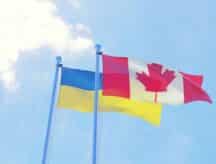How health issues affect PGP applications
Canada has medical admissibility rules that may affect some parents' and grandparents' sponsorship applications.
Generally speaking, foreign nationals coming to Canada for more than six months must submit an immigration medical exam. This is so Immigration, Refugees and Citizenship Canada (IRCC) can determine whether newcomers are medically admissible. These exams have to be done by a designated panel physician.
Canada may consider someone to be medically inadmissible if the applicant falls under one of the following categories: danger to public health, danger to public safety, or excessive demand on health or social services.
Get a Free Legal Consultation if you Received a PGP 2021 Invitation
Public health, public safety, and excessive demand definitions
According to the Canadian government webpage, being a danger to public health means the person has an infectious disease such as tuberculosis, or they have been in close contact with people who have an infectious disease. To make this determination, the officers consider how the disease could affect people who are living in Canada.
A danger to public safety may apply to someone who could be a risk of suddenly becoming incapacitated, physically or mentally. It could also apply to someone who has unpredictable or violent behaviour.
Finally, IRCC may consider applicants inadmissible if their health condition causes an "excessive demand" on health or social services. A condition may be considered to be excessive demand if the officer determines one of the following:
- the applicant's health or social services for treatment would affect wait times for services in Canada; or
- the services needed to treat their health condition would cost more than the excessive demand cost threshold.
IRCC updates the cost threshold every year based on the latest Canadian average. It amounts to about three times the average cost for health and social services. In 2021, that sum came to about $21,798 per year. If treatments cost less than that, the applicant will not be considered inadmissible under this condition.
Excessive demand rules do not apply to:
- refugees and their dependents;
- protected persons; and
- some people being sponsored by their families, such as children and spouses or common-law partners.
Procedural fairness letters
If IRCC determines that an applicant is medically inadmissible, the officer has to send you a procedural fairness letter explaining the reason why. Applicants have an opportunity to respond to this letter before IRCC makes a final decision on the application.
IRCC accepts evidence of:
- receiving treatment to cure or improve the health condition;
- the kind of medication and services needed, specifically if a doctor has changed the prescription;
- the cost of your medications or services.
Applicants get 90 days to submit new information, starting from the date of the letter. If they cannot respond before then, they may request an extension from IRCC.
Candidates whose conditions fall under the "excessive demand" category may be invited to include a mitigation plan in the response to the procedural fairness letter. The officer will want you to demonstrate that you can support your medical expenses, such as an employer-based medical insurance plan, or a private long-term care facility.
Get a Free Legal Consultation if you Received a PGP 2021 Invitation
© CIC News All Rights Reserved. Visit CanadaVisa.com to discover your Canadian immigration options.
- Do you need Canadian immigration assistance? Contact the Contact Cohen Immigration Law firm by completing our form
- Send us your feedback or your non-legal assistance questions by emailing us at media@canadavisa.com







